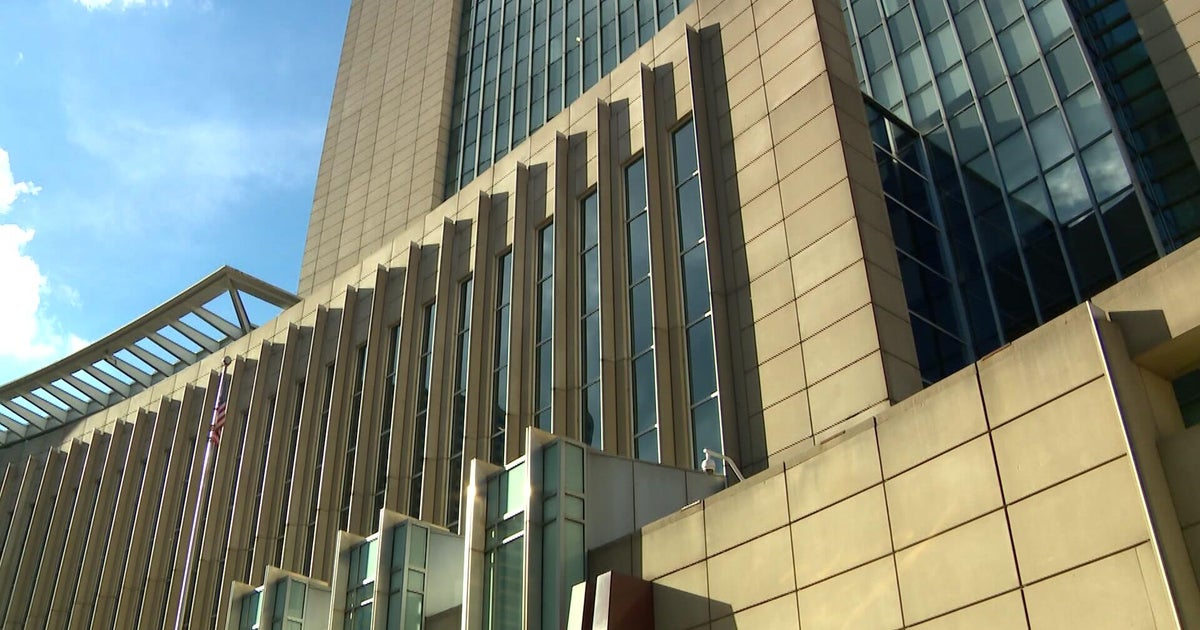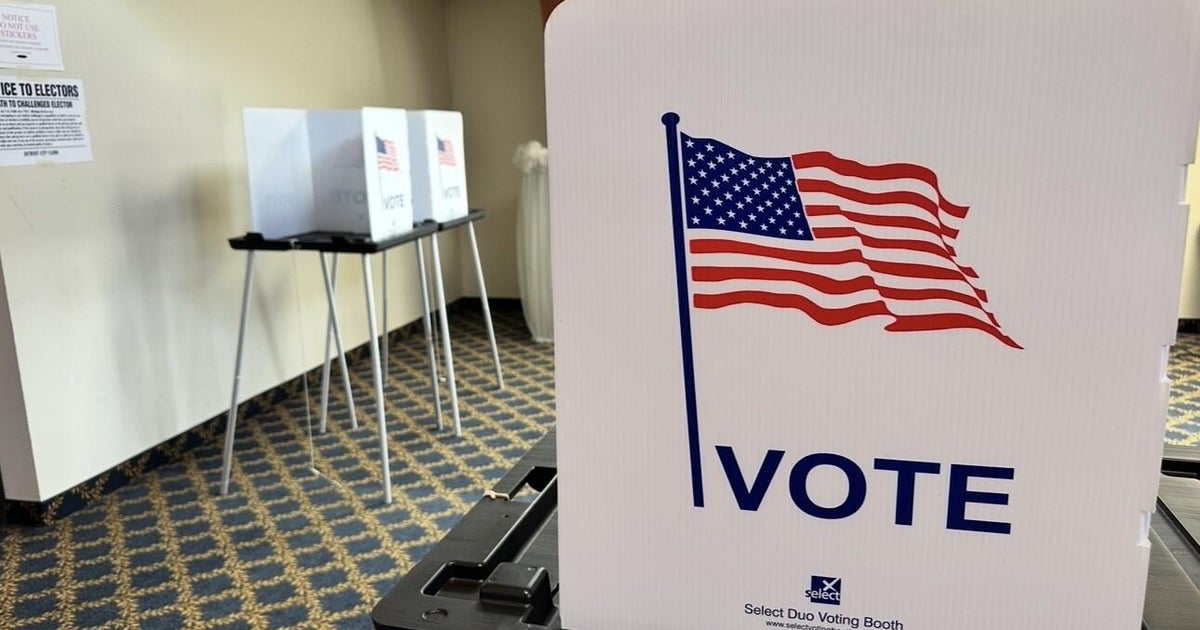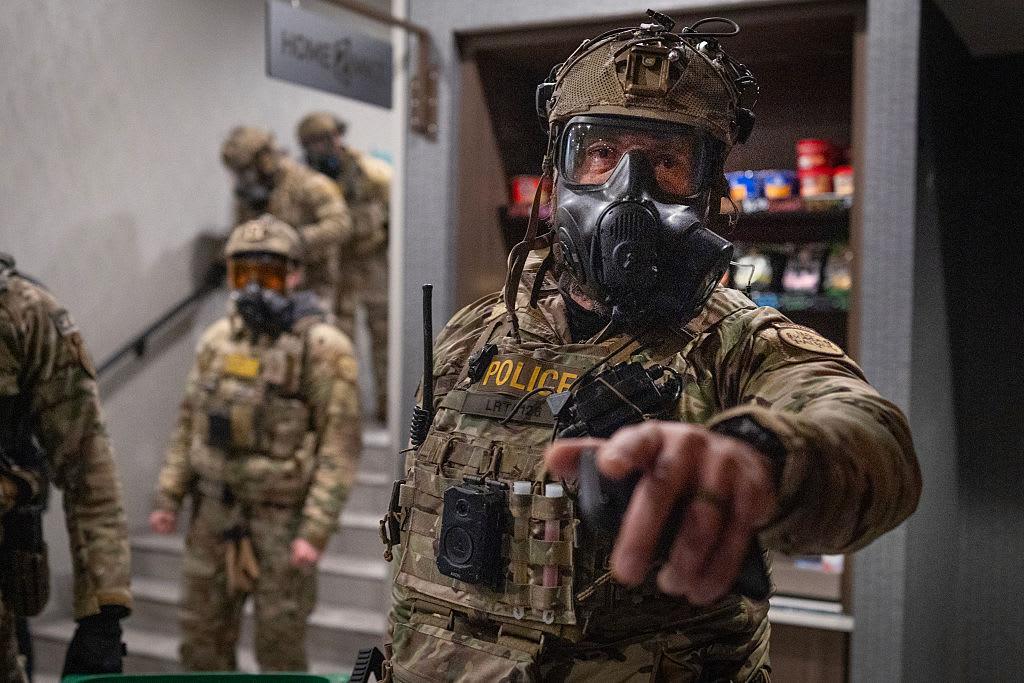DHS "very concerned" about white nationalist attacks on power grid
On the heels of a string of high-profile attempted attacks at power substations, the top intelligence official at the Department of Homeland Security (DHS) remains "very concerned" about copycat attacks on the U.S. energy grid, driven by white nationalist narratives online.
"We've seen attacks against the power grid for a number of years, and some of those attacks are simply people shooting into substations around the country for purely criminal reasons," said Kenneth Wainstein, undersecretary of the Office of Intelligence and Analysis at the Department of Homeland Security. "But some of these shootings are also being done by domestic violent extremists" who are trying to engineer a societal collapse.
This week, two individuals — including a known neo-Nazi — were indicted by a federal grand jury after allegedly plotting to attack five power substations in Maryland and Pennsylvania to "lay waste" to the city of Baltimore.
The suspects, Sarah Beth Clendaniel, of Maryland, and Brandon Russell, of Florida, allegedly planned the offensive online. According to court documents, Clendaniel "described how there was a 'ring' around Baltimore and if they hit a number of them all in the same day, they 'would completely destroy this whole city.'"
"The vision, in short, is that they want to take down the energy grid because if they take down the energy grid, they believe that society will then collapse," Wainstein said. "And out of the collapse, [they believe], will arise a white nationalist government to replace the current government. And we've seen this narrative online among these white nationalist groups."
That white nationalist goal has intelligence analysts on high alert for copycat crimes following recent attacks that targeted power substations in North Carolina and Washington state, knocking out electricity for tens of thousands of customers.
"Copycats are always a problem, no matter what kind of incident it is. If it garners attention in the press, if it's something that is celebrated online by like minded individuals…you have to be concerned about copycat attacks," said Wainstein.
The undersecretary said DHS has been communicating "heavily" with critical infrastructure owners, the owners of the energy facilities and with state and local authorities to advise them to harden their defenses. "At the same time, we have investigators at the FBI and elsewhere who are focusing on the groups that are committing or planning to or talking about committing these attacks," he added.
An FBI intelligence report published last month and reviewed by CBS News confirms nearly two dozen crimes related to the power grid — including arson, shootings and tampering with equipment — remain under investigation. The report indicates that in these cases, investigators have not been able to determine the motive or whether there was any criminal coordination.
But Wainstein did not rule out the specter of insider threats.
"You have to think about all possibilities, whether it be somebody from the outside who has decided for ideological reasons that they want to take out a substation or somebody on the inside who might have their own particular beef with that energy company," he noted. "We've seen all too often in American industry and in American government that insiders have done incredible damage."
Though officials have grown increasingly wary of attacks plotted by known domestic violent extremists with aspirations of a white nationalist state, in some incidents, the motives were criminal, but less ominous.
After attacks in Western Washington, last Christmas, left thousands in the dark and cold, federal agents said at least one of the men behind the outages confessed to turning out the lights in order to facilitate a burglary, enabling him to empty the cash register of a local business.
In December, federal energy regulators at the Federal Energy Regulatory Commission (FERC) ordered a 120-day study to evaluate whether current standards preventing physical security threats at U.S. power stations should be raised in the wake of recent incidents.
As part of its probe, FERC will determine whether more extreme security measures like high-definition surveillance cameras and perimeter patrols should be mandatory for owners and operators of the nation's electrical grid. Nearly a decade has passed since the regulator last audited grid security.
The power grid, made up of three systems — the Western Interconnection, the Eastern Interconnection, and the Texas interconnection — delivers electricity from power plants to residences and businesses nationwide. It's an integral piece of infrastructure that experts say is at risk for both physical attacks and cyberattacks at the same time it's vulnerable to other external factors.
But no single government agency, not even the Department of Energy, is charged with protecting the U.S. power grid, 80% of which is privately owned.
This week, the federal government's top watchdog also determined that plans developed by the Department of Energy to implement a national cybersecurity strategy for the grid fall short of addressing supply chain vulnerabilities. "As a result, these plans will likely be of limited use in prioritizing federal support to states in addressing grid distribution systems' cybersecurity," the report read.
Yet white supremacist plots targeting the grid have "dramatically increased in frequency," according to a study released in September by The Program on Extremism at George Washington University. From 2016 to 2022, thirteen people linked to white supremacist movements have been charged in federal courts with plotting attacks on electrical infrastructure, including 11 defendants indicted after 2020.
Wainstein served as homeland security adviser under the Bush administration and last year, he took on DHS' top intelligence job. Now tasked with leading the only agency within the U.S. intelligence community mandated by law to communicate information to state and local law enforcement, Wainstein concedes that the threat of domestic violent extremism surpasses that of U.S. foreign adversaries.
"I came back into government just about seven months ago. I've been out for 13 years," said Wainstein, who formerly served as assistant attorney general for national security. "When I left in 2009, the main terrorist threat that we were focused on was the international terrorism threat, the threat we saw on 9/11."
Wainstein told CBS News that is no longer the case. "The primary terrorism threat, the most lethal and persistent terrorism threat that we're facing now, is not from the al Qaedas and the al-Shababs and the ISISes, though they remain a serious threat. But it's from the lone actors and the small groups who are ideologically driven here within the United States and motivated out of ideology to foment, conspire to and engage in violence," he continued. "That's what we're seeing now."
Catherine Herridge and Kerry Breen contributed to this report.




